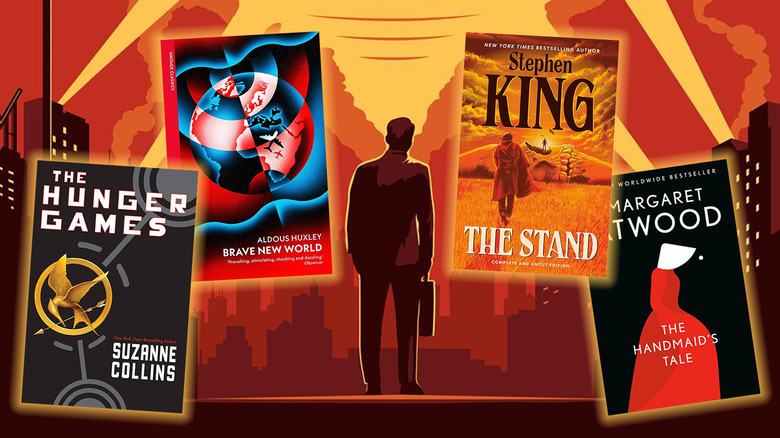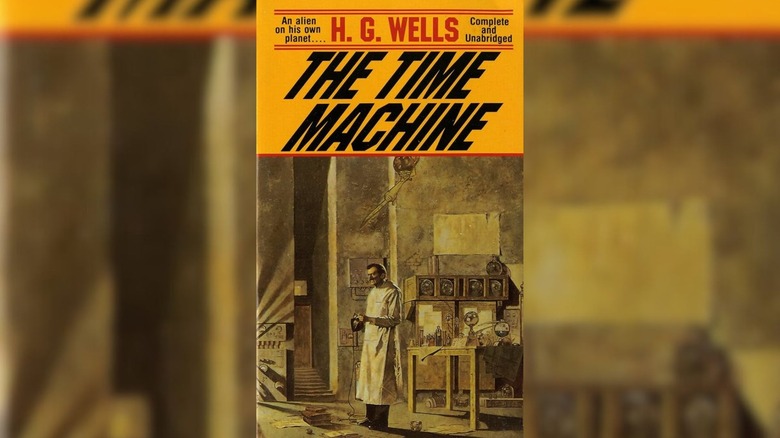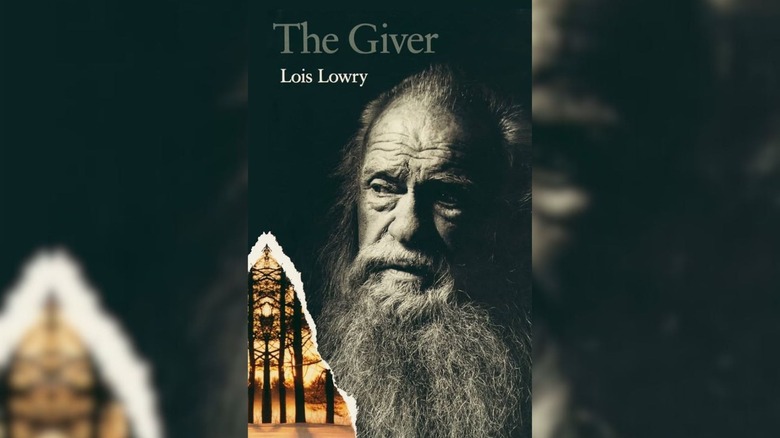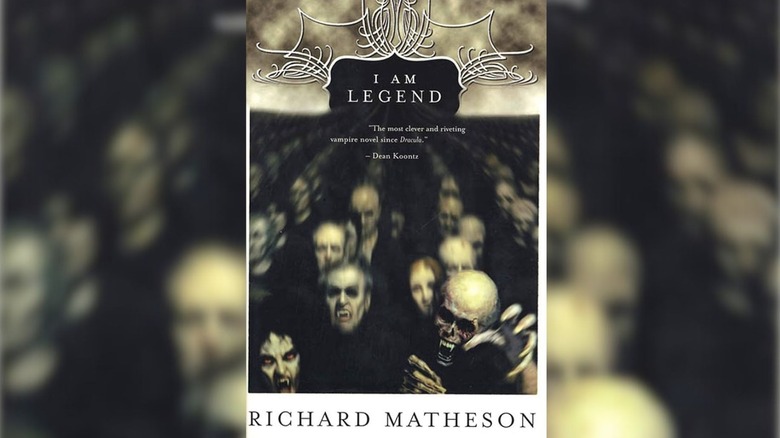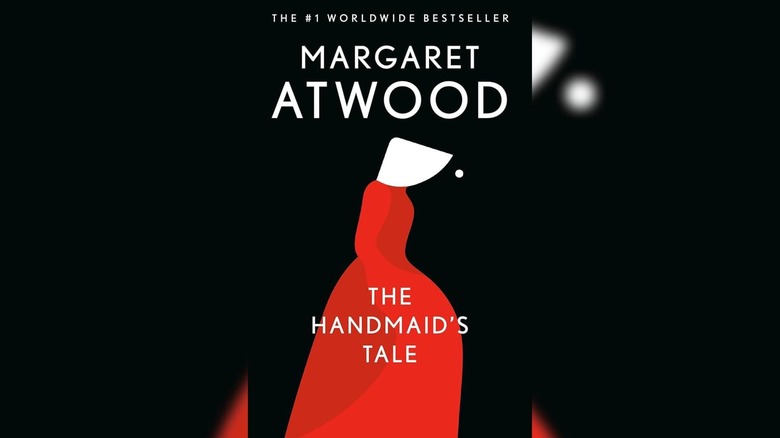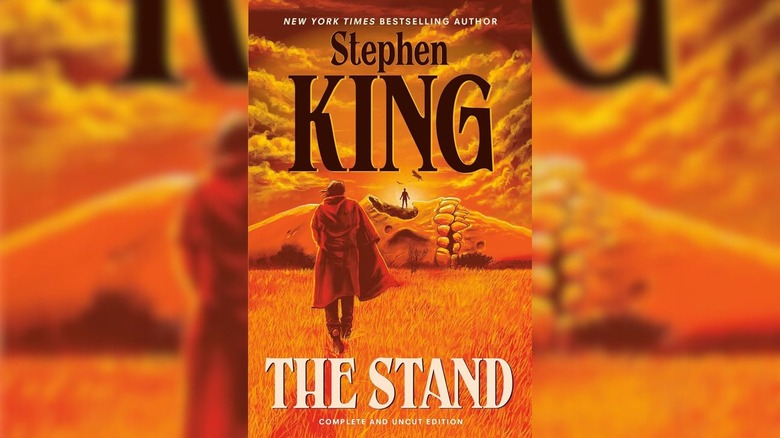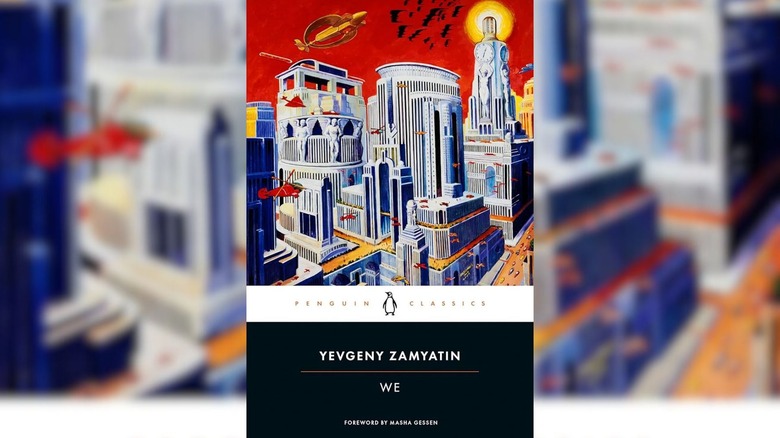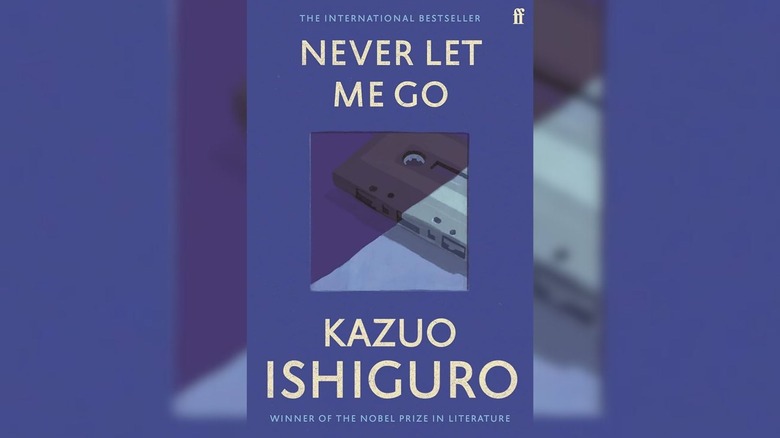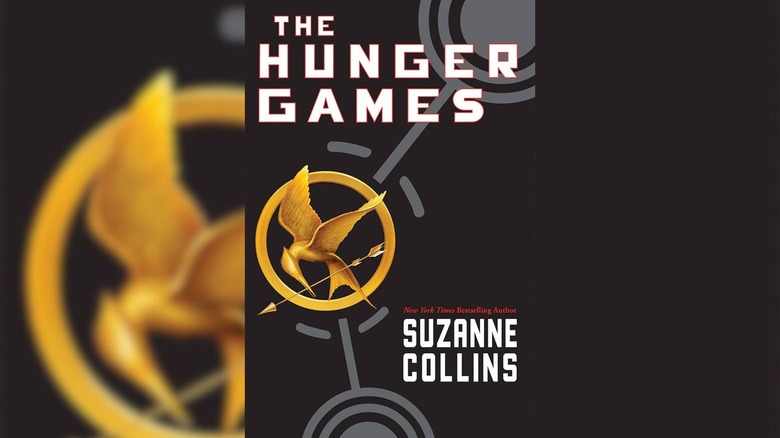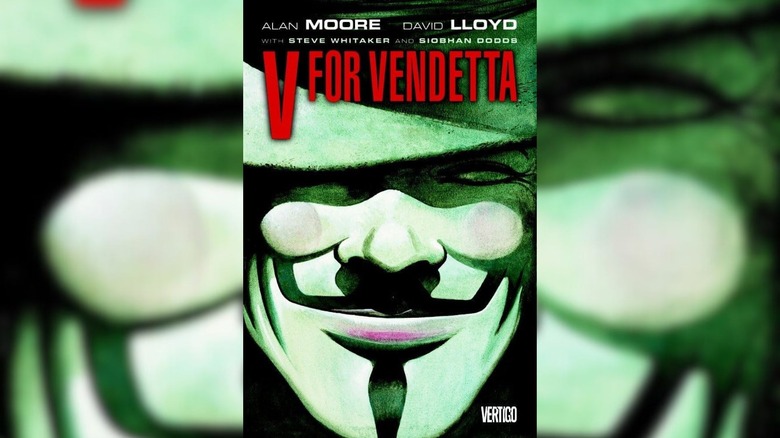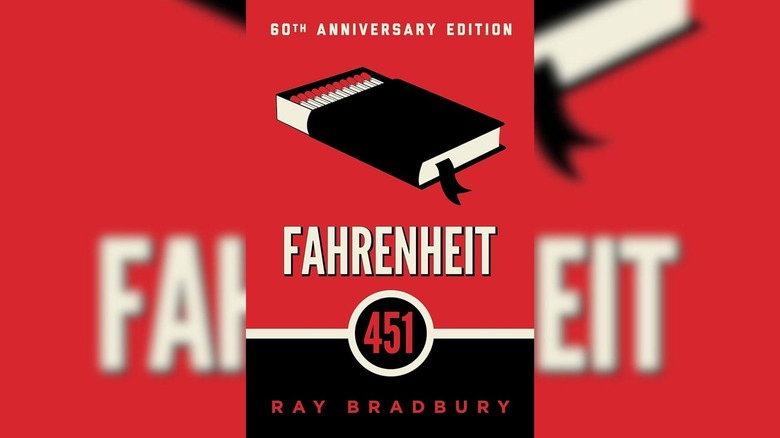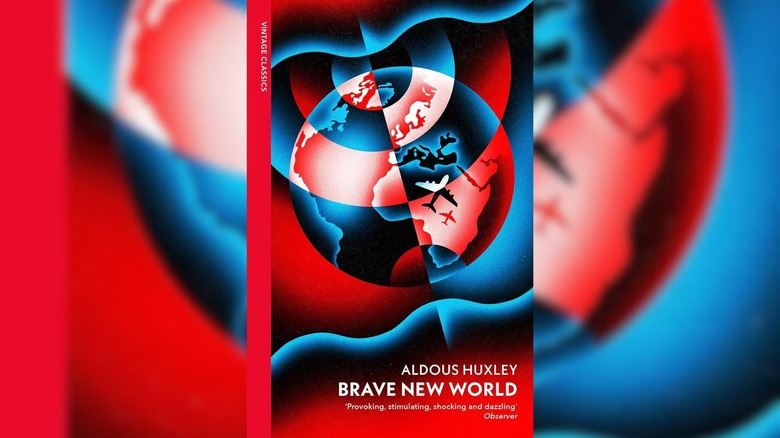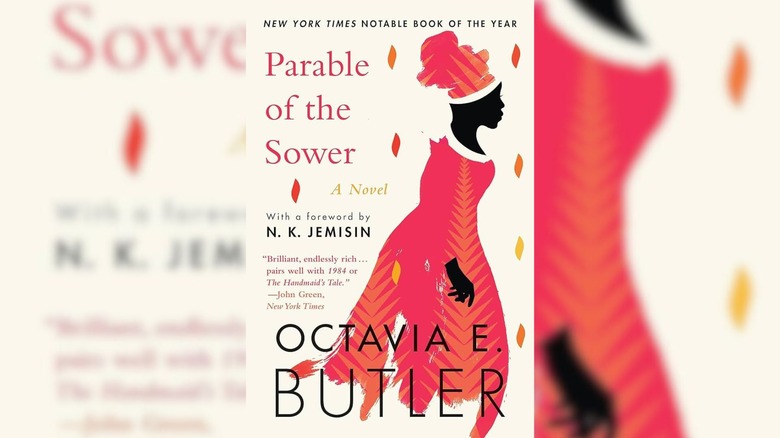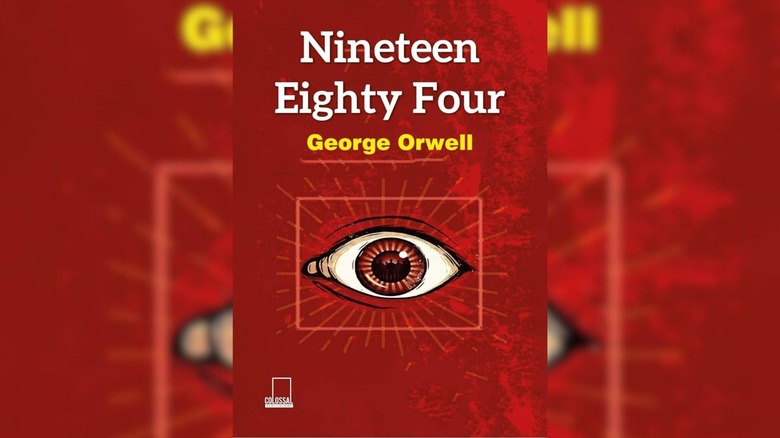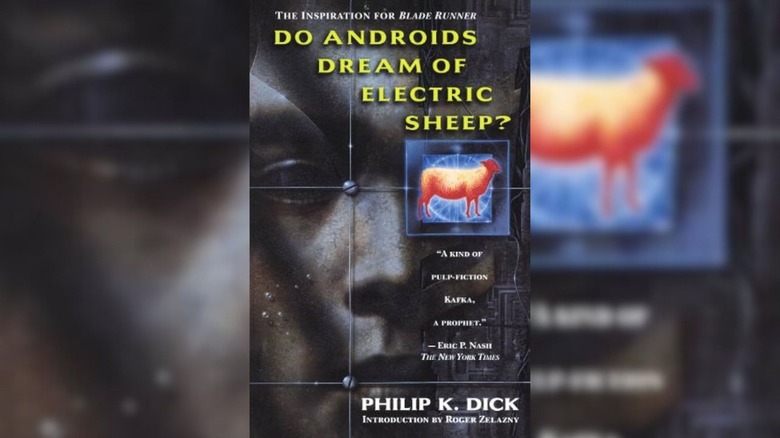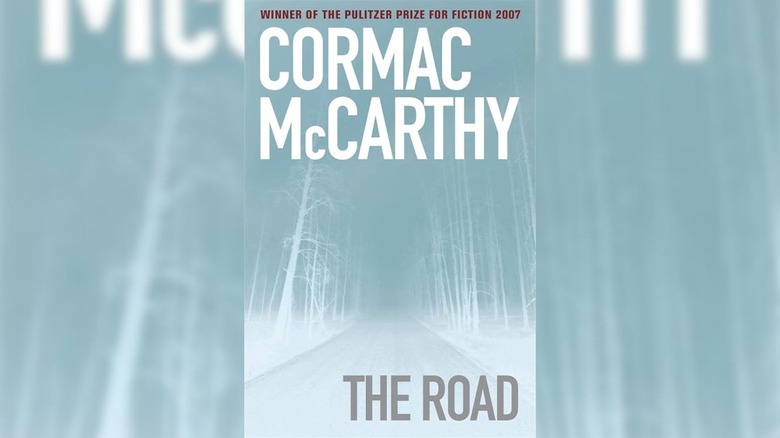The 15 Best Dystopian Novels Of All Time, Ranked
We may receive a commission on purchases made from links.
You may think the world's already pretty bad. Maybe you think we already exist in a dystopian world, but after you read some of the best dystopian novels ever, you'll see just how much worse it can get.
Dystopian fiction exists in contrast to utopian works. Whereas utopias conceive an idyllic world, dystopias examine what happens when society breaks down. It's usually a subset of science-fiction where something that exists in the real world has been taken to the extreme, causing mass suffering for most of the population. Environmental degradation, police states, or even the complete absence of free will are common aspects of the genre, using the story at hand to explore a darker world and how humanity can still manage to shine through.
From older books that have been scarily prescient to newer works that are already classics, these are the dystopian books to read to get the best handle on what makes this genre so important. Like the best dystopian movies of all time, these works can show us where we're heading, if we don't make significant changes to how we treat one another now.
Here are the best dystopian novels of all time, many of which have been turned into movies and TV shows
The Time Machine by H.G. Wells
"The Time Machine" is a seminal work in science-fiction as it gave rise to the idea of time travel. Plus, the 1960 film adaptation remains one of the best time travel movies ever made. The book by H.G. Wells, which came out in 1895, follows a time traveler who ventures into the future to discover that society has been divided into two classes — the weak, feeble Eloi, who descended from the modern elite classes, and the primitive Morlocks, who are descended from the poor.
It's a clear critique of class divisions during H.G. Wells' time. It also functions in stark contrast to utopian works at the time, which would show everyone benefitting from societal progress. Here, no one ends up better off. The Eloi are unproductive and are so useless that they're even afraid of the dark. The future society has become so reliant on technology that people have lost skills. It's amazing reading "The Time Machine" today and seeing that even in the 19th century, there were fears about what will happen to our humanity if technology continues to do everything for us.
The Giver by Lois Lowry
Many of the best dystopian novels seem like utopias at first. That's the case with "The Giver" by Lois Lowry, something most people probably read in junior high for English class (even though it's a banned book in many areas), but the story's message is worth remembering into adulthood. It presents a world without war and suffering, but it comes at the cost of people surrendering their individuality and memories of the past. The protagonist, Jonas, trains to become the new Receiver of Memory, meaning he'll remember everything from before this "utopia" as well as experience emotions he's never felt before.
Memory is a core concept throughout "The Giver." It's seen as a source of pain, something the Receiver of Memory deals with to spare everyone else the horrors of sadness. However, there can't be joy without sadness either. Part of free will means people are going to make bad choices, so removing the possibility of someone making a bad choice may seem ideal at first. But "The Giver" asks the question as to whether life is even worth living if you can't know happiness and love.
I Am Legend by Richard Matheson
"I Am Legend" by Richard Matheson has inspired countless other works. There have been several films based on the novel, but funnily enough, 2025's "28 Years Later" remains the best unofficial adaptation that fundamentally understands what made the book work. It's a post-apocalyptic novel where humanity has been ravaged by a disease that's turned most survivors into vampires. One man remains, as he tries to fight and kill his way through the monsters only to realize things aren't quite what they seem (we'll avoid spoiling it in case you don't know how it ends).
"I Am Legend" is so much more than a mere horror novel. Watching Robert Neville escape from and hunt monsters is thrilling, but there's the central concept of what makes someone human. Community and civilization are essential to the human experience since no one man is an island. This makes the book all the more vital to read post-COVID lockdowns. Society has become more digital with more real-world communities dissipating, but holding onto those values and being there for one another (in a real way) is paramount to humanity continuing.
The Handmaid's Tale by Margaret Atwood
"The Handmaid's Tale" by Margaret Atwood, especially considering its recent Hulu adaptation, has become a calling card of sorts in the modern American political climate. The novel examines a version of the United States where a theocracy takes control of the government and strips women of their autonomy, using them as nothing more than a means to reproduction.
While the book, which came out in 1985, seems like a dire distress beacon for what could happen in America, Atwood actually drew inspiration from how women were treated elsewhere in the world. Iran's Islamic revolution in the 1970s played a big role where women were forced into strict dress codes and had to abide by a unrelenting patriarchal regime. The book effectively looks at how women have been treated all over the globe and simply envisions what would happen if something like that occurred here. It's a chilling look at the future that shows despite all the gains women have achieved, it could all still be so easily taken away from them.
The Stand by Stephen King
"The Stand" can be viewed as Stephen King's attempt to make an epic on the scale of "The Lord of the Rings," only with far more King-isms and a healthy dose of horror. But like "Lord of the Rings," King is first and foremost interested in exploring some of the most basic concepts in fiction, like the eternal struggle between good and evil. Or to take it a step further, the idea of freedom versus order.
A plague with a 99% mortality fate has ravaged the world, leading to two primary factions materializing in what's left of the United States that eventually have to battle for supremacy. "The Stand" has horrific moment, but it's different from what you might find in most other King novels. There are no evil clowns or dead pets rising from the dead. "The Stand," which was adapted into a miniseries again in 2020, is horrifying because it examines human nature and how we might behave to appease an authoritarian regime, surrendering our freedoms to appease someone as wicked as Randall Flagg.
We by Yevgeny Zamyatin
"We" by Yevgeny Zamyatin was actually banned in Russia, so Zamyatin had to smuggle it out of the country to get it published in 1924, leading to his eventual exile from his home country. It's like a story beat you'd expect to find in the best dystopian novels, with "We" centering on a futuristic world where everyone lives in see-through buildings, meaning there's no privacy. People also don't have proper name, with the protagonist being designated D-503, further stripping him of autonomy and identity.
Like plenty of other dystopian novels, some of which have likely been influenced by "We," this book presents a dystopian society as utopian. There's no fear or concerns. Even people's romantic partners are designated to them by the One State. But when people deny themselves any semblance of humanity, they become strangers to themselves. Truth be told, a government may prefer it if their citizens functioned more as machines, doing what they're told without argument. Zamyatin suffered consequences for trying to publish this book, and dangerous, provocative art should always be sought out, even when it's a century old.
Never Let Me Go by Kazuo Ishiguro
Some dystopias aren't even pretending to be utopias. They seem completely mundane on the surface, like the world initially presented in "Never Let Me Go" by Kazuo Inshiguro. Everything seems fine at first; you think you're reading a book about some kids growing up at a boarding school. But then there's the turn that they're actually clones who are being raised healthy so that their organs may be harvested one day for their hosts.
It's easy to see what went wrong in the world in books like "The Handmaid's Tale" and "We." The horrific reality of "Never Let Me Go" is that everyone is seemingly fine raising a subjugated class for the sole purpose of killing them when some organs are needed. It's a showcase of how easily people can accept horrors just because it's too inconvenient to deal with the alternative. What's perhaps most fascinating about the novel is how the characters don't try to stage a rebellion, as is often the case in dystopian fiction. Instead, they accept what their lives are, which raises questions as to how much agency anyone has to change their fates.
The Hunger Games by Suzanne Collins
"The Hunger Games" movies might be box office juggernauts, so it's easy to overlook just how great the source material truly is. As a young adult dystopian novel, there's the prerequisite coming-of-age story and love triangle, but it also depicts a world in which an authoritarian government continues to punish the masses for an uprising decades early. They host an annual Hunger Games competition where 24 kids battle to the death until only one remains.
The world of Suzanne Collins' "The Hunger Games" feels so much more fleshed out than some of its YA dystopian contemporaries. The people living in the Capitol are completely oblivious to the suffering in the districts. Propaganda is on full display, as those controlling the games can manipulate facts to serve whatever narrative they want. And Katniss is a wonderful YA protagonist since she deviates from the typical "chosen one" storyline. She doesn't want to be a hero but merely finds herself in the midst of a political battle far greater than herself.
V for Vendetta by Alan Moore
A populace willingly surrenders its freedoms following a war and pandemic to a far-right political party that utilizes propaganda to make citizens fear immigrants and anyone else they deem undesirable. Sound familiar?
"V for Vendetta," a graphic novel written by Alan Moore with art from David Lloyd and Tony Weare, envisions a chilling future of what could be. But where there's oppression there's also hope as Evey, the daughter of activists, is recruited by the mysterious vigilante V, who seeks to overthrow the current political system. V is by far one of the most complex protagonists within graphic novels. We, as readers, know the government is wrong, but how far should a person be willing to go to upend it? V goes so far as to torture Evey to ensure she has the same goal as him. Filled with quotable lines, the novel was adapted into a pretty good movie starring Natalie Portman although don't expect Moore to heap any praises onto any adaptations of his work.
Fahrenheit 451 by Ray Bradbury
"Fahrenheit 451" by Ray Bradbury gets evoked any time a city or state bans books. It makes sense given the book is fundamentally about censorship, but it can be read as so much more than that. The world of "Fahrenheit 451" sees firemen burn anything that could lead to independent thought, with anyone caught with a book facing severe punishment.
The book is about government overreach, but it's also about what happens when the general population loses its desire to read anything challenging. Many people simply don't read at all these days, and that's a problem. Or taking it a step further, people don't want to be exposed to anything that could make them uncomfortable for a second. It seems like the internet regularly discusses whether sex scenes in movies are necessary, because they make them feel icky sometimes. Art will occasionally make you feel negative emotions, and that's not a bad thing. It doesn't take a totalitarian government to create an uninformed society if people are more than happy to do it themselves.
Brave New World by Aldous Huxley
Many dystopian novels foresee a future in which humans surrender their individuality for greater order and control. And many of those books owe a debt to Aldous Huxley's "Brave New World." His vision of the World State sees a society where technology has advanced so far to where humans don't have to do much of anything. Reproduction is handled artificially, and people are regularly taught that consumerism is the only thing they need for happiness.
It's amazing how many technologies "Brave New World" predicted. There's genetic engineering where people can choose what traits their offspring are born with. There's also the proliferation of mass media where people don't have to be bored for a second. It's not unlike most people now owning smartphones where they can go onto social media anytime they're waiting for something so that they don't have to be alone with their thoughts for any amount of time while simultaneously manipulating their emotions. Being human isn't about being perfect; it's about being human.
Parable of the Sower by Octavia E. Butler
"Parable of the Sower" by Octavia E. Butler isn't just a great dystopian novel; it sets a template for how we can create as close to a utopian society we can get in the real world. Her novel, published in 1993, takes place in 2024 where the United States has been ravaged by climate change and corporations ruling over everything. Pretty prescient stuff, Butler!
The protagonist, Lauren Olamina, is capable of hyper-empathy and leads a new religious movement called Earthseed with the central tenet of "God is change." The basic idea is that to be complacent is to invite doom. The world needs to adapt to new ideas and threats instead of clinging onto the past. And above all else, one must put the community over the individual. It's a great metaphor for many of the predicaments the world finds itself in today. With an endearing main character and a plot that feels like it could've been written today, "Parable of the Sower" is a great entry into speculative fiction that everyone can learn from.
Nineteen Eighty-Four by George Orwell
Big Brother. Doublethink. Thought Police. If you've ever used any of these terms to describe the current state of civilization, you can thank "Nineteen Eighty-Four" for introducing them to the zeitgeist. George Orwell's novel involves a totalitarian dictatorship which forces everyone to think the same way and actively rewrites history. Critical thought is punished, and no matter where you are, you have to assume you're being watched.
What has allowed "Nineteen Eighty-Four" to remain relevant decades after its publication is how it serves as a social Rorschach test. No matter what government is in charge, people can attempt to draw parallels between the book and what's happening in the real world. This occasionally leads to a misuse of the word "Orwellian," but discussion should always be welcome when it comes to analyzing a book's greater themes. "Nineteen Eighty-Four" might follow a specific year, but its message remains timeless.
Do Androids Dream of Electric Sheep? by Philip K. Dick
"Do Androids Dream of Electric Sheep?" by Philip K. Dick deserves to be known in its own right outside of Ridley Scott's "Blade Runner." The book is somehow even bleaker than the film, diving into themes of the importance of empathy much more thoroughly. The plot's similar to the film where Rick Deckard hunts androids, which are virtually indistinguishable from humans except for lacking empathy. But it's Rick's empathy that eventually causes him to see that even androids deserve respect. We're all dust in the end of the idea, lending credence to the book's themes of entropy and how everything will eventually turn to Kipple.
"Do Androids Dream of Electric Sheep?" is one of Dick's most philosophical works. The idea of androids being more human than humans has bee copped by countless other science-fiction projects. After all, while humans in the book discuss empathy, very few show true empathy. It's that lack of empathy that has likely created the desolate world the book takes place in. When humans lose their single defining trait, what makes a world worth living in?
The Road by Cormac McCarthy
The best dystopian novels often have some semblance of civilization remaining (as warped as it might be). But "The Road" by Cormac McCarthy, which is among the very best of his prolific works, is devoid of any proper society. The planet is barren from some untold apocalypse, and the focus centers on a father and son making their way through this wasteland, dealing with marauders and cannibals.
McCarthy's prose is simultaneously haunting yet beautiful. Descriptions are sparse, highlighting the bleak nature of this world. Yet there are moments of profundity and awe. For many dystopian protagonists, it's easy to maintain a sliver of hope when there's at least some kind of society to improve upon. But when there's nothing, no hope for the world getting better, what's mankind to do?
The answer is seemingly to love who you can. The father has memories of what the world used to be, which provide some comfort. However, that world is dead, just like society as it was decades ago is no longer what we're dealing with. At the end of the day, we're all forced to wander down some forsaken road and hope that we can find some happiness in a world that's far too often cruel.
